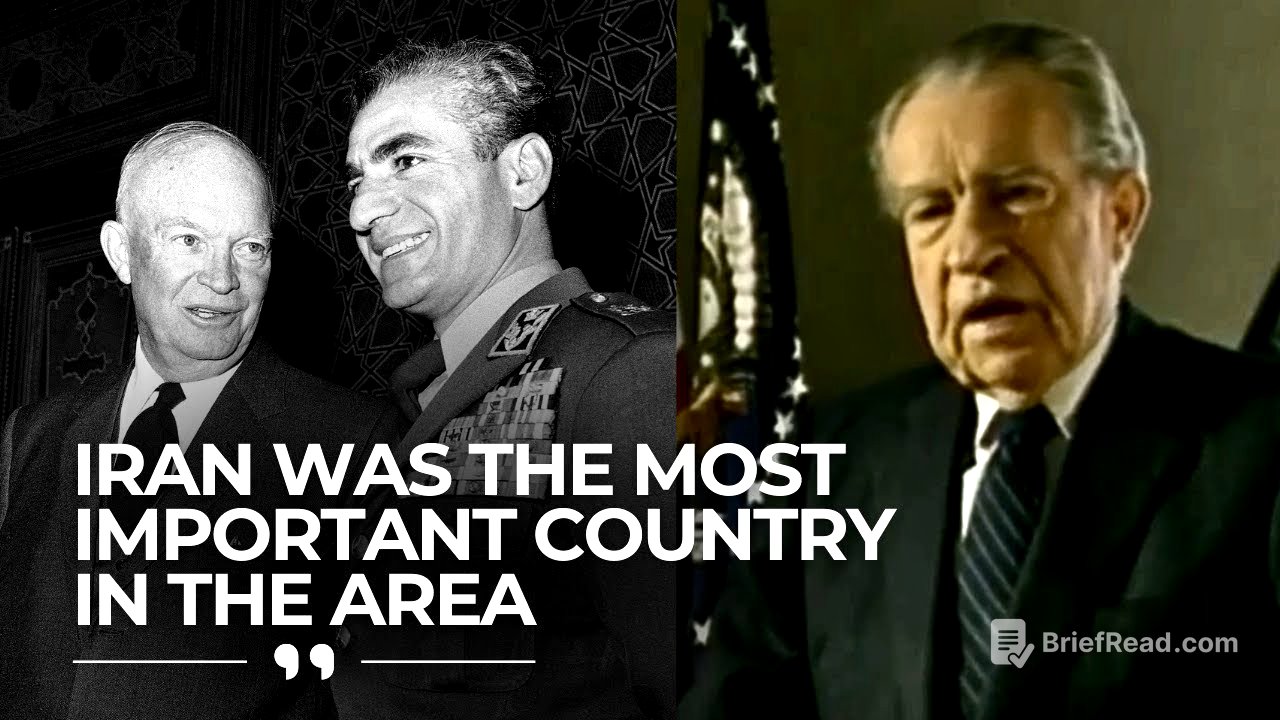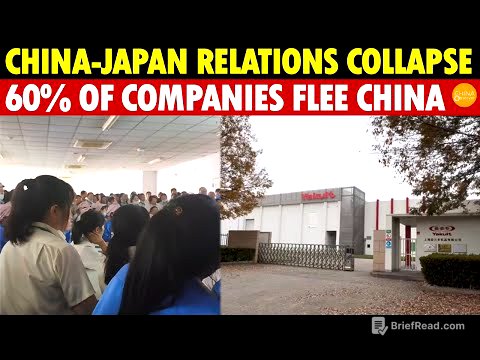TLDR;
This video discusses President Eisenhower's Middle East policies, focusing on the 1953 coup in Iran, the Suez Crisis, and the landing in Lebanon. It argues that Eisenhower's actions, while controversial, ultimately served American long-term interests by establishing a strong, friendly relationship with Iran under the Shah, which contributed to regional stability for 25 years. The video contrasts this with the later instability following the Shah's departure and the rise of Khomeini.
- Eisenhower's support for the coup in Iran in 1953 was crucial for maintaining a US-friendly government.
- The Shah's rule, enabled by Eisenhower's policies, ensured Iran played a role as a peacekeeper in the Persian Gulf for 25 years.
- The absence of such a friendly power in Iran after the Shah's departure led to increased instability in the region.
Eisenhower's Middle East Policies [0:00]
The speaker introduces a discussion on President Eisenhower's Middle East policies, acknowledging their significant impact during the 1950s. He mentions the Suez Crisis, the CIA's involvement in Iran, and the landing in Lebanon as key events. The question posed is whether these policies ultimately furthered American long-term interests and if they should be considered part of Eisenhower's legacy.
The 1953 Coup in Iran [1:06]
Eisenhower's decision in 1953 regarding Iran is examined, focusing on the US and Britain's support for a coup that removed Mosedc, described as a left-leaning, Soviet-influenced leader. This action restored the Shah to power. While criticised, the speaker argues that this decision was crucial because Iran was the most important country in the region due to its population and oil reserves.
Impact of Restoring the Shah [1:53]
Restoring the Shah to power resulted in a strong, friendly relationship between the United States and Iran for 25 years. Iran played a role as a peacekeeper in the Persian Gulf area. The speaker highlights an example from 1973 during the Yam Kipper War when Iran was the only Persian Gulf oil producer that did not cut off oil sales to Israel. This, he argues, would not have happened if Mosedc had remained in power.
Iran After the Shah [2:37]
Following the Shah's departure during the Carter administration and his replacement by Khomeini, Iran became a "wild card". Although weakened, Iran remains very important. The speaker implies that the stability provided by the Shah, supported by Eisenhower's policies, was lost, leading to a more unpredictable and challenging situation in the region.









